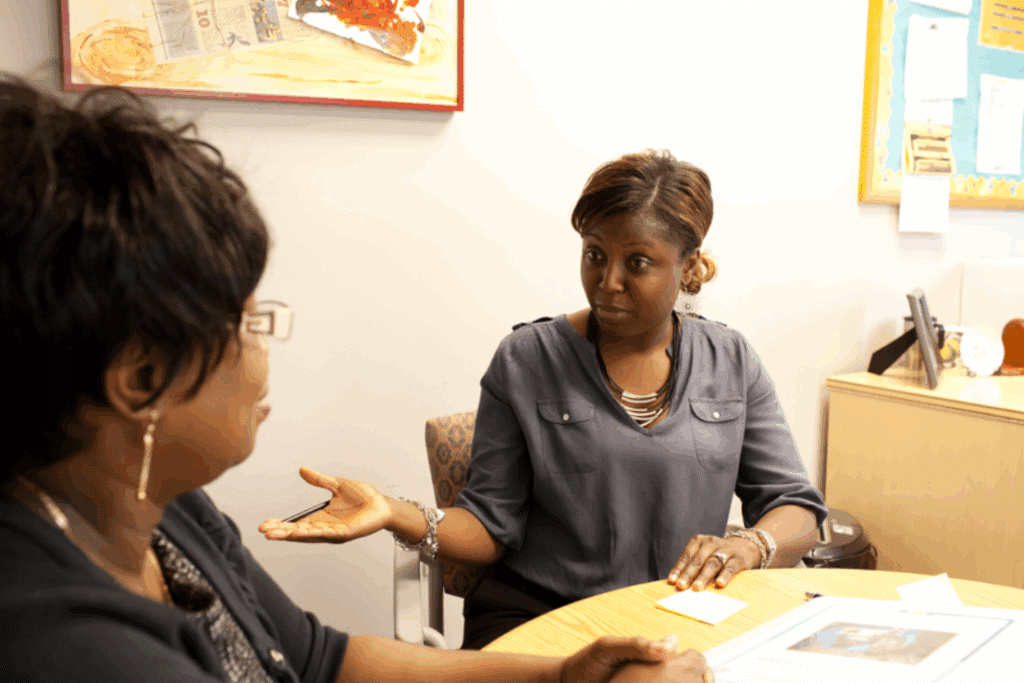Why the First 1,000 Days Matter: Advocacy Tips for Early Childhood Professionals

Key Takeaways
- Your voice is critical in shaping systems that work for babies, families and the professionals who support them.
- You don’t need to be a policy analyst to make an impact. What moves people, especially decision-makers, is hearing what this work looks like up close.
- Our Think Babies campaign makes it easy to contact Members of Congress.
The earliest stage of life is a time of incredible growth. During this period, a child’s brain develops rapidly, laying the foundation for learning, emotional well-being, and physical health. Early relationships, safe environments, and consistent care all shape the way children grow and how they experience the world.
As someone who works with young children, you already understand this. You see the long-term impact of high-quality early childhood support and the gaps left when families don’t get what they need. But many policymakers don’t. That’s why your voice is critical in shaping systems that work for babies, families and the professionals who support them.
What the Research Shows
The science is clear: early experiences shape the architecture of a child’s brain. These early years are not just important; they are foundational.
- Rapid Brain Growth: In the earliest years, babies form over 1 million neural connections per second. By age 3, the brain is 80% of its adult size.
- Relationships Matter: Secure, responsive caregiving supports emotional regulation and learning. Strong attachments build resilience.
- Health Starts Early: Poor prenatal care and maternal health are linked to low birth weight and delayed development.
- Mental Health Counts: Up to 22% of babies in poverty show signs of mental health conditions. Early support improves outcomes.
- Intervention Pays Off: One-third of toddlers who get early intervention don’t need special education later.
- Smart Investment: Every $1 spent on early childhood can return up to $13 in long-term savings.
Yet access remains limited:
- Only 17% of eligible families receive child care assistance.
- Paid leave is out of reach for many parents.
- Early Head Start serves just 11% of eligible children.

What You Know That Others Don’t
Early childhood educators and caregivers witness the systems at work. They also see when services and programs fall short. You see what families are up against: long waitlists for services, high child care costs, untreated maternal mental health conditions and policies that don’t reflect real life. And you know that compensation doesn’t reflect the value of your work.
What many outside the field don’t see is that your work is deeply shaped by policy decisions. Programs like these are made possible through investments at every level of government:
- Early Head Start
- Medicaid and CHIP
- HealthySteps
- Paid family and medical leave
- Child Care and Development Block Grant
- Early intervention and mental health support (like DC:0–5™)
- Safe Babies court teams
Without these programs, many families wouldn’t get the help they need, and neither would the professionals trying to support them.

How You Can Advocate (Even with Restrictions)
Some early childhood professionals work in settings that limit how they can tell stories and speak on policy issues. It’s a real concern, and one that deserves clarity and care. But advocacy doesn’t have to cross those lines.
Professionals can preserve confidentiality, and tell stories about what they see. People who work in nonprofits can do advocacy but need to be careful about when and how they do it. If you have questions, ask your managers at work, but here are a few tips:
- Speak as a private citizen. You’re allowed to write letters, join events, or contact lawmakers outside of work hours.
- Share what’s happening broadly. Without naming names or sharing specifics, you can talk about common challenges. For example: “Many of the families I work with can’t access mental health services because of long waitlists.”
- Use stories — carefully. You can protect confidentiality and still tell powerful stories. “A child in my care went through four caregivers in one year. Stability matters.”
- Educate, don’t lobby. Sharing research or outcomes about early childhood is advocacy, and it’s often well within your role.

Storytelling Is Powerful
You don’t need to be a policy analyst to make an impact. What moves people, especially decision-makers, is hearing what this work looks like up close.
- What happens when child care is stable?
- How does a parent respond when they finally get support for postpartum depression?
- What does it look like when a baby has a consistent, responsive caregiver?
These aren’t just stories. They’re evidence.
You can also amplify family voices—another way to keep the message focused and grounded. Our Think Babies™ campaign and Strolling Thunder event, for instance, works directly with parent advocates to elevate real experiences into policy conversations.
How are you or the families you serve affected by policy change?
Take Action in Your Own Way
There’s no single path to advocacy, and you don’t have to do everything at once. Here are simple ways to start:
- Invite local leaders to your program. Let them see what high-quality early childhood care looks like and what you need to sustain it.
- Share resources with families. Empower parents to understand their rights and speak up.
- Join advocacy groups. Sign up for alerts from Think Babies™ to stay informed and learn about opportunities to take action and speak up for what babies need.
- Connect with others. Join coalitions in your state. When educators and families speak together, it’s harder to ignore.


